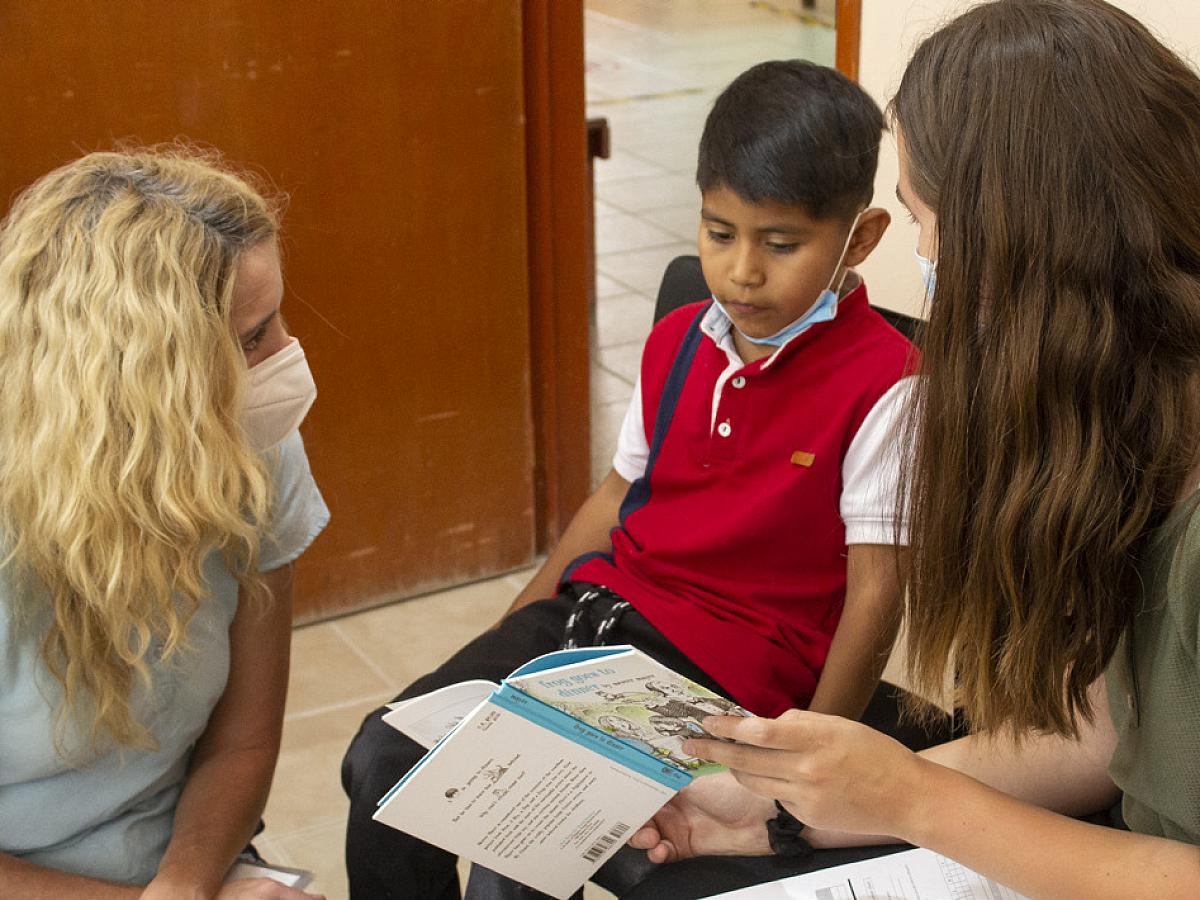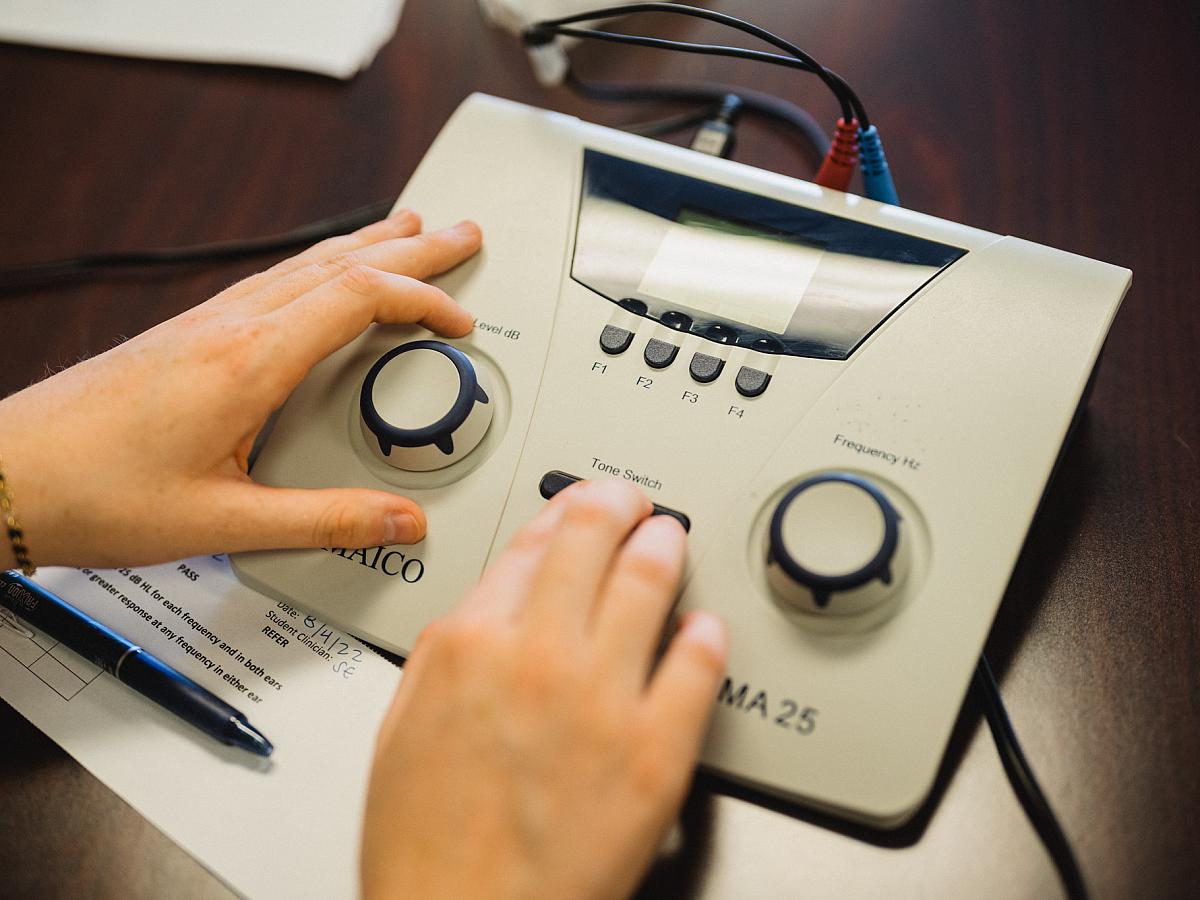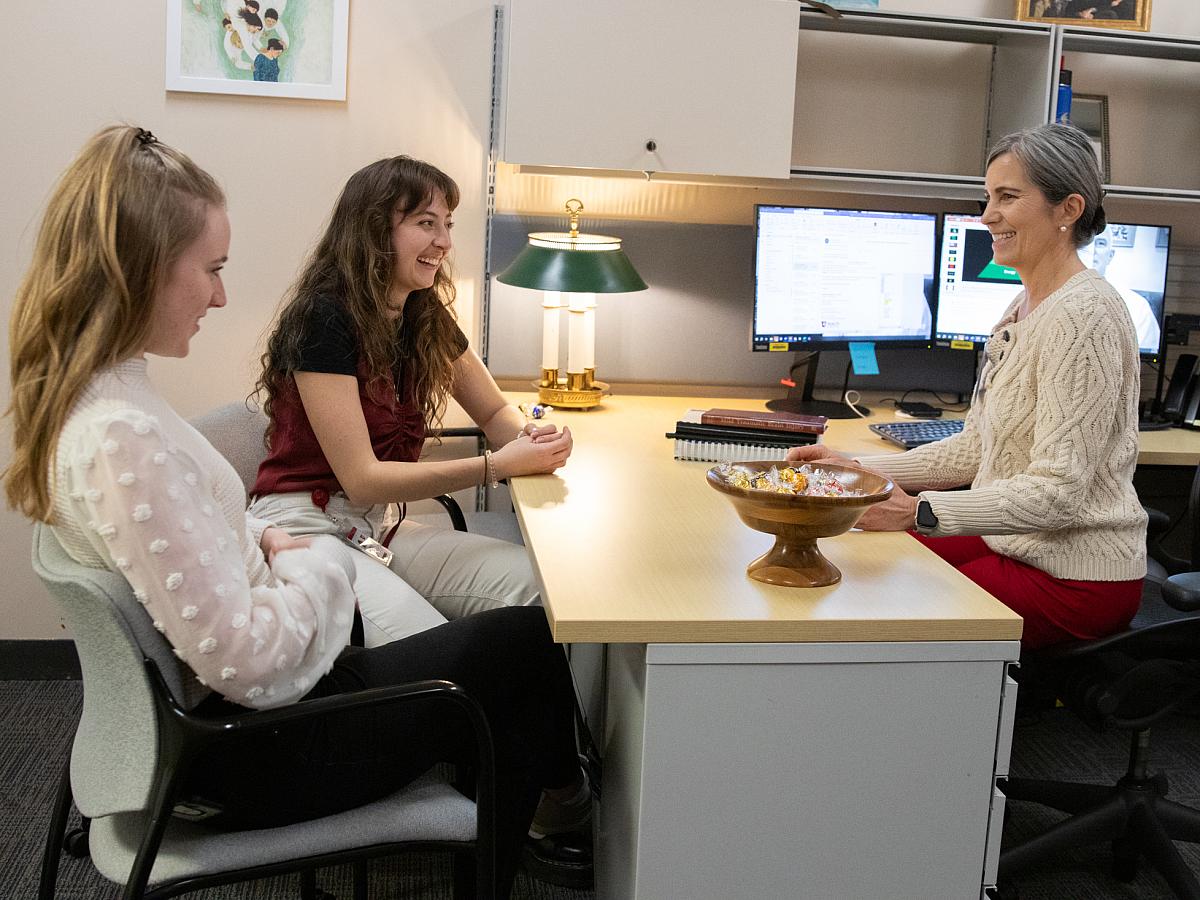Speech & Hearing Science Degree
The undergraduate major in Speech & Hearing Science (SPHS) from the department of Communication Sciences and Disorders (CSD) is a preprofessional degree for speech-language pathology and/or audiology. The undergraduate student in this major obtains a combined degree in Speech & Hearing Science, then chooses to study either speech-language pathology or audiology at the graduate level.
Community Engaged Learning
Community Engaged Learning (CEL) combines academic coursework with the application of institutional resources to address challenges facing communities through:
- Engagement that addresses societal needs identified by a community.
- Intentional integration of learning objectives co-created with community partner(s).
- Student preparation and ongoing critical reflection.
- Clearly articulated benefits for students, community, and campus partners.
- Opportunities to critically examine social issues and situate self within a community setting.
.jpg)
Learning Abroad In Mexico
This course provides students with theoretical and experimental learning opportunities. As a learning abroad course, students will engage in Spanish immersion classes, participate in learning projects with the agency of their choice, and participate in guided cultural tours within Oaxaca City, Mexico and its nearby towns (pueblos).

Diverse Populations with Communication Needs
Students will work with culturally and linguistically diverse populations, individuals with special needs, and/or marginalized individuals. Through CEL, students will gain a deeper understanding of the concept of health and educational disparities in our community.

Cross-Cultural Competence using Interpreters
To target the development of clinical skills when working with patients with limited English skills, students will engage in hands-on, instructor-led, role-playing scenarios to provide guided practice in how to interview patients using interpreters. The training scenarios will consist of a trio of students taking turns acting as a speech-language pathologist, patient/caregiver, and interpreter.

Requirements to Practice
A master's degree is required for professional practice in speech-language pathology, while a doctor of audiology (AuD) degree is required for professional practice in audiology.